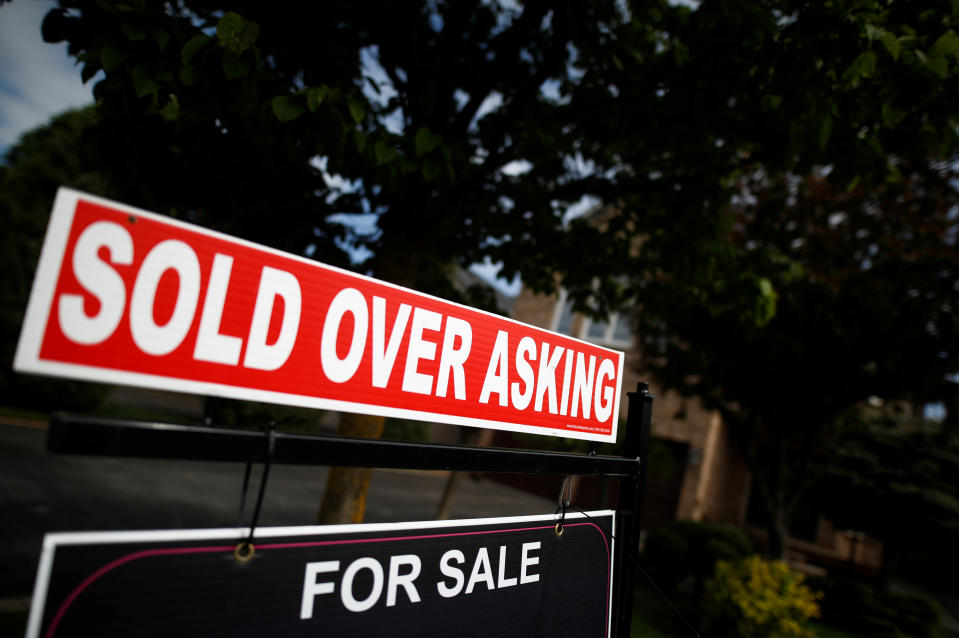Canadian homes are expected to get even more expensive

If you think home prices are out of control now, just give it a couple of years.
Fewer homes are being built and sold compared to 2017. But that’s going to change, according to Canada Mortgage and Housing Corporation (CMHC), likely pushing prices even higher.
“Housing starts are projected to stabilize in 2020 and 2021 at levels in line with long-run averages. This follows two years of declines from elevated levels in 2017,” said Bob Duggan, CMHC chief economist, in a release.
“Resale activity and house prices are expected to fully recover from recent declines, supported by growth in income and population.”
Sales fell from to 488,000 last year compared to 533,353 in 2016. CMHC expects a rebound to as much as 519,100 by 2021 because of disposable income growth and new household formation.
That means the average price of a home would jump to anywhere between $539,800 and $569,600 by 2021. That’s higher than the current average of around $488,000 this year, and $511,830 in 2017.
As has been the trend for several years, Ontario and British Columbia would lead growth in sales and price appreciation. Quebec is also expected to be a strong performer. Price gains in other regions are expected to be modest in comparison.
CMHC says overvaluation in Vancouver and Toronto has come down, gradually bringing prices more in line with fundamentals.
“The current outlook for renewed growth in home prices over the forecast horizon does not imply that overvaluation and/or price acceleration measures will necessarily worsen, since growth in fundamentals over the same time period can be sufficient to support stronger resale market activity and price growth,” said CMHC in its outlook.
CMHC acknowledges its outlook could be derailed by global and domestic shocks.
“Global trade tensions have continued to rise and impact business and investor confidence, tempering economic conditions and increasing the risk of slower economic and housing market activity,” said CMHC.
“In addition, high household indebtedness remains a vulnerability because it increases the risk of economic and housing market instability,”
CMHC says the debt problem would be compounded if interest rates and unemployment went up, putting downward pressure on the housing market.
Jessy Bains is a senior reporter at Yahoo Finance Canada. Follow him on Twitter @jessysbains.
Download the Yahoo Finance app, available for Apple and Android.

 Yahoo Finance
Yahoo Finance 